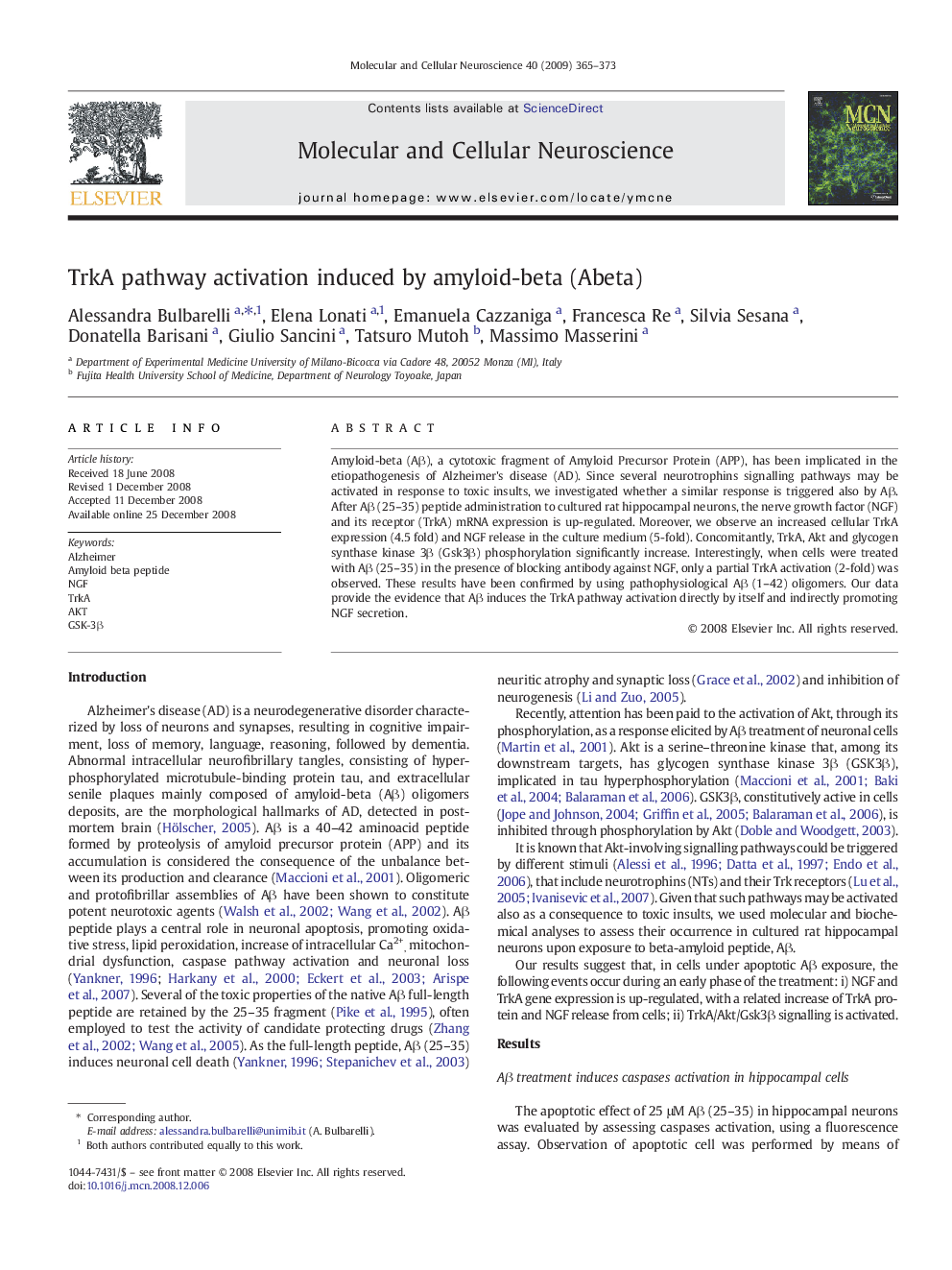| Article ID | Journal | Published Year | Pages | File Type |
|---|---|---|---|---|
| 2198967 | Molecular and Cellular Neuroscience | 2009 | 9 Pages |
Amyloid-beta (Aβ), a cytotoxic fragment of Amyloid Precursor Protein (APP), has been implicated in the etiopathogenesis of Alzheimer's disease (AD). Since several neurotrophins signalling pathways may be activated in response to toxic insults, we investigated whether a similar response is triggered also by Aβ. After Aβ (25–35) peptide administration to cultured rat hippocampal neurons, the nerve growth factor (NGF) and its receptor (TrkA) mRNA expression is up-regulated. Moreover, we observe an increased cellular TrkA expression (4.5 fold) and NGF release in the culture medium (5-fold). Concomitantly, TrkA, Akt and glycogen synthase kinase 3β (Gsk3β) phosphorylation significantly increase. Interestingly, when cells were treated with Aβ (25–35) in the presence of blocking antibody against NGF, only a partial TrkA activation (2-fold) was observed. These results have been confirmed by using pathophysiological Aβ (1–42) oligomers. Our data provide the evidence that Aβ induces the TrkA pathway activation directly by itself and indirectly promoting NGF secretion.
